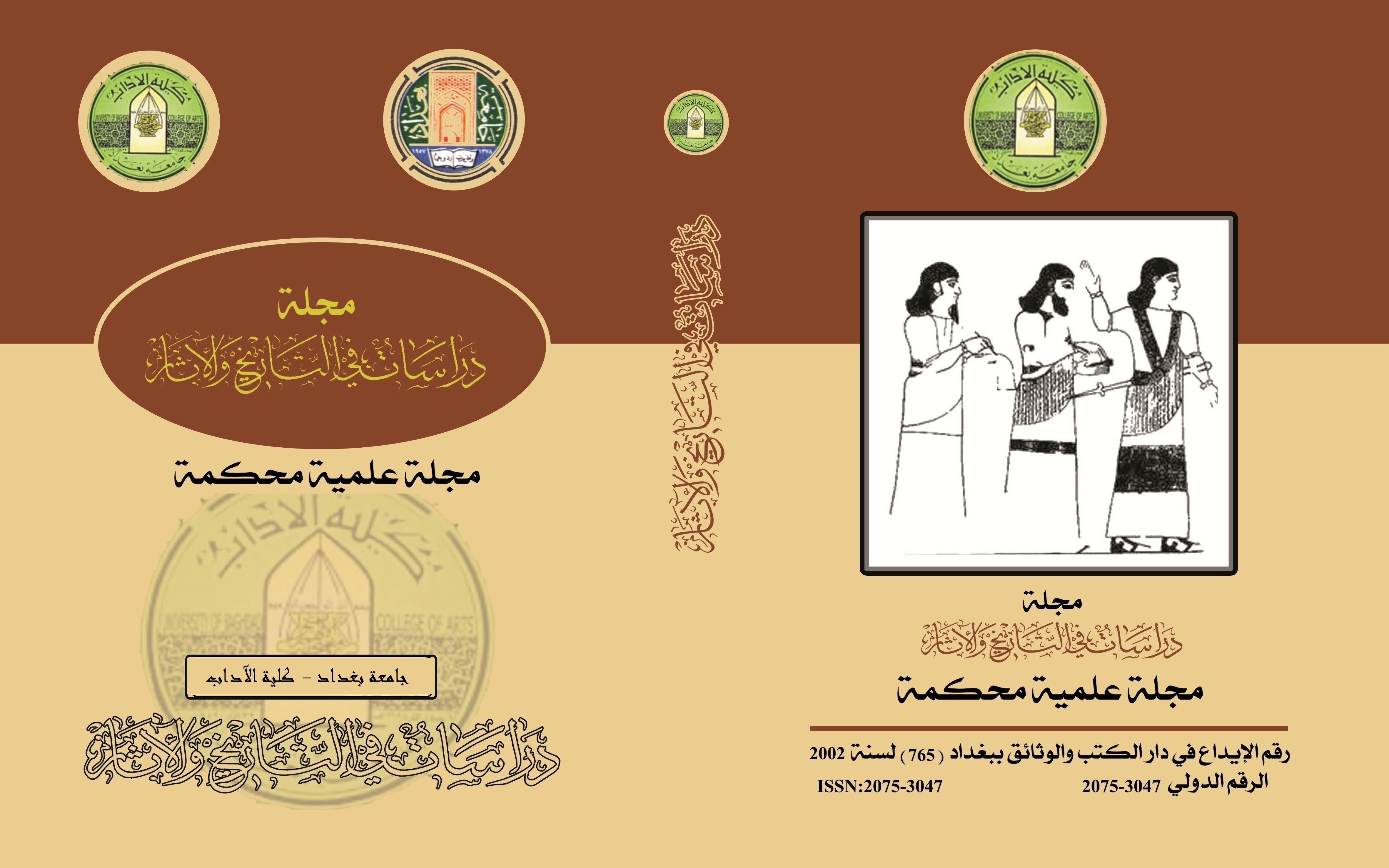Abstract
Generally speaking, the importance of the historical books acquires from the role and position of historians in the life of their nations besides their following to the political, social, economical and cultural events, in addition to register the its phenomena and different developments. The study of those books gives the researcher a good acknowledge in understanding the development the methodological styles of the historical writing during the sequential phases. Hence, the study of historical books in the late century takes a special importance due to a result of new stage in the history of Arab and Islamic nation especially with the foreign invasion and fall of the Abbasid Caliphate in (656 A.H / 1258 A.D). this leads to appear a new visions of the political and social positions that make many cities such as Baghdad, Damascus and Cairo having a great role in the intellectual and cultural activity. This a clear sign that indicates continuation of the nation life and the care of scholars especially historians to continue in their scientific and intellectual efforts to contribute in continuation of the revival of their nation during the ages despite of invasion and the foreign domination.
The Abasaid era of the seventh century A.H is characterized with lots of scholars who have contributions in the political, administrative, economical, scientific and intellectual fields. Ibin AlSaa’i is one of those scholars who appeared in this era and his book “Al-Dur A-Thameen in Asmaa Al-Musanafeen” is one of the historical reference that covered that age besides his book tackles the biography of writers, their deeds, descendants, and their poetry.
The Abasaid era of the seventh century A.H is characterized with lots of scholars who have contributions in the political, administrative, economical, scientific and intellectual fields. Ibin AlSaa’i is one of those scholars who appeared in this era and his book “Al-Dur A-Thameen in Asmaa Al-Musanafeen” is one of the historical reference that covered that age besides his book tackles the biography of writers, their deeds, descendants, and their poetry.
Abstract
تكتسب المؤلفات التاريخية عامة اهميتها من مكانة المؤرخين ودورهم في حياة الامة ومتابعتهم للأحداث والوقائع السياسية والاجتماعية والاقتصادية والثقافية وتسجيل ظواهرها وتطوراتها المختلفة ، وان دراسة تلك المؤلفات تفيد الباحث في معرفة تطور الكتابة التاريخية واساليبها المنهجية عبر المراحل المتعاقبة . من هنا فان دراسة المؤلفات التاريخية في القرون المتأخرة تاخذ اهمية خاصة لانها نتاج مرحلة جديدة في حياة الامة العربية والاسلامية لاسيما بعد تعرض بغداد للغزو الاجنبي وسقوط الخلافة العباسية سنة ( 656هـ / 1258م ) وما تلاه من تداعيات في الاوضاع السياسية والاجتماعية الامر الذي ساعد على اضطلاع مدن عديدة كبغداد ودمشق والقاهرة بنشاط فكري وثقافي كبير . وفي ذلك اشارة واضحة على ديمومة حياة الامة ، وحرص علمائها من المؤرخين وغيرهم ، على الاستمرار في جهودهم العلمية ونتاجاتهم الفكرية ، بغية المساهمة في ديمومة النهضة العلمية والفكرية للامة وعطائها المستمر عبر العصور المتتالية ، رغم قوة الاحتلال وظروف التسلط الاجنبي العصيبة .
تميز العصر العباسي القرن السابع الهجري بكثرة العلماء الذين كانت لهم إسهامات في كافة المجالات السياسية والإدارية والاقتصادية والعلمية والفكرية ، ويعد ابن الساعي البغدادي أحد أبرز أولئك العلماء الذين ظهروا في تلك الحقبة التاريخية، . كما ان كتابه " الدر الثمين في اسماء المصنفين " يعد من المؤلفات التاريخية الواسعة التي صنفت في عصره فضلاً عن كونه من مؤلفاته التي تتناول تراجم المصنّفين، وأنسابهم، ومناقبهم، وأسماء مؤلّفاتهم، ونتفا من أشعارهم، وطرائف من أخبارهم .
تميز العصر العباسي القرن السابع الهجري بكثرة العلماء الذين كانت لهم إسهامات في كافة المجالات السياسية والإدارية والاقتصادية والعلمية والفكرية ، ويعد ابن الساعي البغدادي أحد أبرز أولئك العلماء الذين ظهروا في تلك الحقبة التاريخية، . كما ان كتابه " الدر الثمين في اسماء المصنفين " يعد من المؤلفات التاريخية الواسعة التي صنفت في عصره فضلاً عن كونه من مؤلفاته التي تتناول تراجم المصنّفين، وأنسابهم، ومناقبهم، وأسماء مؤلّفاتهم، ونتفا من أشعارهم، وطرائف من أخبارهم .
Keywords
ابن الساعي البغدادي ، منهج ، الدر الثمين في اسماء المصنفين ، شيوخه ، تلامذته ، مؤلفاته
